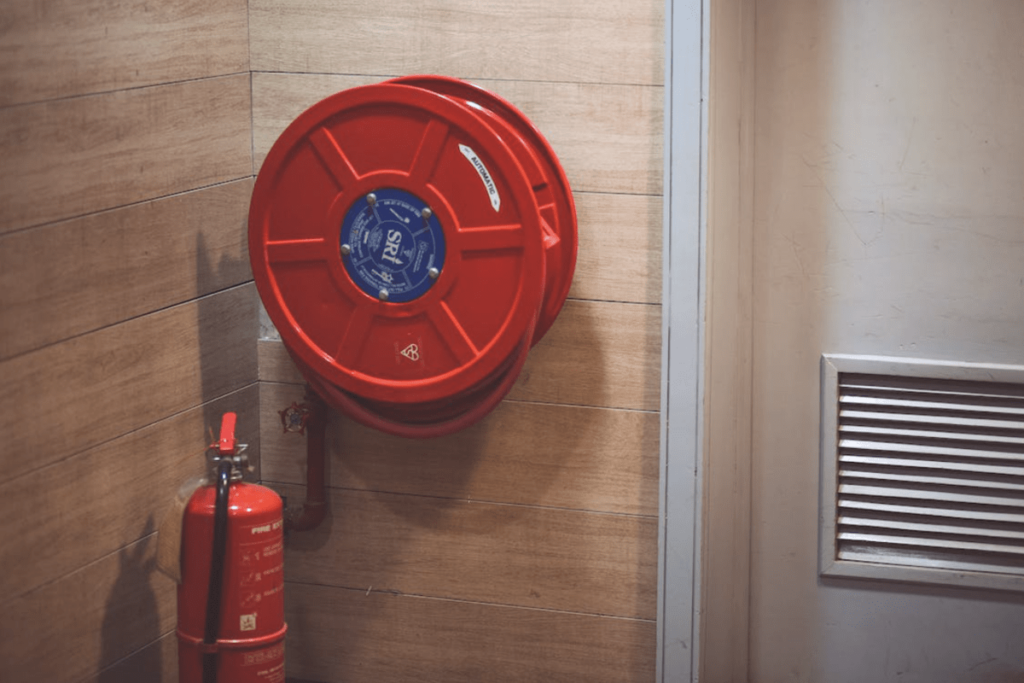Sevier County has introduced new requirements for Short-Term Rental Units (STRUs) that every property owner looking to rent out their space should be aware of.
There are some specifics, so we crafted a guide to make things easier for you and demystify the process. In the paragraphs below, we will go over:
- Who needs to submit a STRU application?
- What is the deadline for submission?
- What are the penalties for non-compliance?
- What is the application process?
- Common questions.
Let’s get started.

You can Complete the STRU application online through the Sevier County website.
Who needs to submit a STRU application?
The new STRU application requirements apply to all property owners looking to rent their properties on a short-term basis (for less than 30 consecutive days) and located outside the city limits of Sevier County.
This includes cabins, houses, and any other types of lodgings that fall under the short-term rental category.
What is the deadline for submission?
The deadline to submit your STRU application is March 31, 2024. It’s crucial to adhere to this deadline to ensure your rental property can legally operate within Sevier County for the year 2024 and beyond.
What are the penalties for non-compliance?
Failure to submit your STRU application by the deadline may cause significant penalties, including:
- Loss of the grandfathered exemption to current building codes.
- Potential fines and prohibition from renting your property until compliance is achieved.
- The necessity to upgrade your property to meet the 2016 TN Building Code, which could involve considerable expense.
What is the application process?
To comply with the new regulations, property owners must:
- Complete the STRU application online through the Sevier County website.
- Pay the application fee of $250 for properties with an occupancy of 12 or fewer, with an additional $25 per person for properties with an occupancy of 13 or more.
- Schedule and pass a physical inspection of your property by the local fire marshal to ensure it meets safety and code requirements.
Common Questions
Q: What if I miss the deadline?
Missing the deadline removes the possibility of being grandfathered under older codes, requiring your property to meet the 2016 TN Building Codes, which could be more costly.
Q: How long is the wait for an inspection?
Currently, the wait time is estimated between 6-10 months, depending on the location and backlog. However, as long as your application is submitted before the deadline, you can continue renting your property while awaiting your inspection.
Q: Is this the same as the annual business license?
No, the STRU application is separate from the annual business license required to lease your property. This is a new requirement specifically for ensuring the safety and compliance of short-term rental units.
Q: Can I continue renting out my property while waiting for the inspection?
Yes, as long as you have submitted your STRU application by the deadline, you can continue renting out your property while waiting for the fire marshal’s inspection. The key is to ensure your application is submitted before March 31, 2024, to avoid any disruptions in your rental operations.
Q: What happens if I sell my property? Does the new owner need to reapply for the STRU permit?
Once you’ve got your STRU permit, it passes to the new owner upon the transfer of the deed, maintaining the property’s compliance. However, the current owner mustn’t allow the approved permit to lapse, as this could require the new owner to undergo the application process again.
Q: Are there any specific safety or code requirements my property needs to meet?
The STRU application includes a requirement for a physical inspection by the local fire marshal, primarily focusing on safety and building code compliance. This may include smoke detectors, fire extinguishers, proper exit signage, and adherence to occupancy limits. The exact requirements can vary, so reviewing the current 2016 TN Building Codes and preparing your property accordingly is advisable.
Q: What if my application is denied?
If your application is denied, you will receive specific feedback on the areas of non-compliance or concern that need to be addressed. Property owners typically can make the necessary adjustments and reapply. It’s important to address these issues promptly to minimize any downtime in renting your property.
Q: How do I pay the application fee, and are there any additional costs involved?
You can pay the application fee online during the submission process. The base fee is $250 for properties with 12 or fewer occupants, plus an additional $25 per person for properties accommodating 13 or more occupants. Be aware that if your property requires significant updates to meet the inspection standards, there could be additional costs involved in bringing your property up to code.

The STRU application includes a requirement for a physical inspection by the local fire marshal.
A Guide to the STRU Cabin Application Requirements in Sevier County, TN
You can find most of the information you need regarding the STRU Cabin Application Requirements in Sevier County, TN in the paragraphs above. For more details about the STRU application process and fee structure, and to get started with your application, head to Sevier County’s official website.
Who are we?
At Avada, we handle everything related to your short-term rental, from promoting it on the right platforms and dealing with guests to keeping it in great shape and optimizing your returns. This means no hassle and more free time for you.
Keep Reading
- Insider Tips: How to Remove Negative/Bad Airbnb Reviews
- Crash Course for New Cabin Owners in Pigeon Forge & Gatlinburg: 10 Things You Should Know
- Shining Light on Airbnb & Vrbo Damage Claims: Avada’s In-Depth Analysis of 20,000+ Bookings in The Smoky Mountains
- Avada’s “Dirty Little Secrets” for Cleaning & Maintaining Cabins


